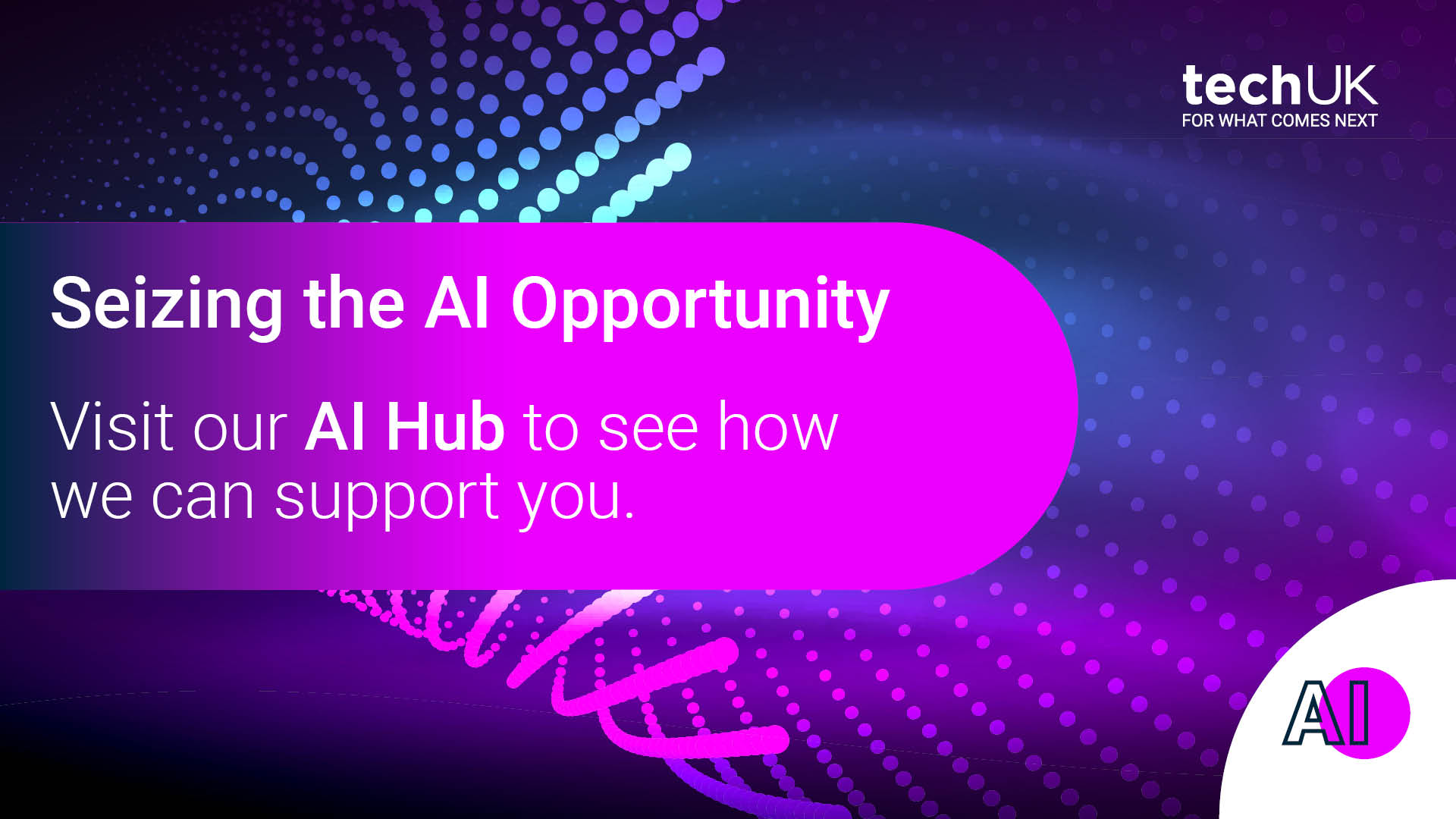Event round up: techUK Industrial AI sprint campaign - scaling Industrial AI panel and meetup
On 17 June 2025, techUK continued its Industrial AI Sprint campaign with a focused session on scaling Industrial AI beyond pilots and proof-of-concept work. The event brought together industry leaders, policy experts, and technical professionals to explore the practical challenges and opportunities of deploying AI technologies at scale in industrial environments.
The panel discussion and networking session provided valuable insights into the enablers, blockers, and practical pathways to operationalising AI across R&D-intensive sectors including advanced manufacturing, life sciences, and defence. Building on the momentum from the campaign's successful launch, this event tackled the critical next step: moving from experimentation to full-scale deployment.
A huge thank you to our speakers and attendees for making the session so insightful. The Industrial AI Sprint campaign continues to drive forward conversations on seizing the AI opportunity across UK industry.
Speakers included:
- Daniel Smalley - Industry Automation Leader, Siemens
- Nina Gryf - Senior Policy Manager, Make UK
- Alistair Garfoot - Director of Strategic Services, Mind Foundry
- Jimmy Jarvis - Senior Policy, Research and Engagement Manager, Digital Catapult
- Usman Ikhlaq - Programme Manager - Artificial Intelligence, techUK (Chair)
Learn how you can get involved by reading our insight on the sprint campaign.
Submit your expression of interest for our awareness day here.
Panel Discussion: Scaling Industrial AI - From Pilots to Production
The expert panel explored the critical transition from successful AI pilots to full-scale industrial deployment, addressing both technical and strategic challenges that organisations face when scaling AI solutions.
Bridging the Pilot-to-Production Gap
Digital maturity and readiness metrics
Success in scaling Industrial AI requires thorough assessment of organisational readiness. Key indicators include having a comprehensive digital roadmap and establishing clear metrics to evaluate whether AI pilots are truly ready for full-scale deployment, regardless of the specific metrics chosen.
The UK's manufacturing opportunity
With the UK having dropped from 8th to 12th in global manufacturing rankings, there's an urgent need to grow the sector from 10% to 15% of GDP. Accelerating AI adoption could add at least £142 billion to the UK economy and push the country up to 7th place globally, while creating high-quality jobs and increasing investment.
Long-term vision and infrastructure
Panellists emphasised the need for a 10-15 year industrial innovation strategy, supported by delivery institutions with stable funding and regional presence, following successful models from Korea and Singapore.
Technological Integration and Legacy Systems
Infrastructure challenges
Many SMEs continue to face significant barriers with legacy systems and outdated infrastructure. The lack of basic digital tools, such as ERP systems critical for smart factory integration, remains widespread. Success depends on building internal capabilities and securing whole-business buy-in rather than relying solely on external consultants.
Interoperability solutions
The panel discussed practical approaches to integrating AI into legacy systems without disrupting critical operations, focusing on overcoming infrastructure limitations and managing interoperability between modern AI systems and diverse or ageing tech stacks.
Data as the Foundation
Breaking down data silos
Discussions highlighted how siloed data, aging equipment, and inadequate infrastructure continue to hinder AI implementation. The lack of cohesive data strategies, including data modelling and transformation, exacerbates these challenges. Complexities surrounding data governance across different industries further complicate adoption.
Building data foundations
Strong data foundations for scaling Industrial AI require comprehensive approaches from collection and contextualisation through to governance, with emphasis on ensuring data integrity and usability across teams and departments.
Workforce and Cultural Transformation
Human-centric AI adoption
The panel emphasised that developing a skilled workforce is paramount to successful AI adoption. While technical AI skills are necessary, domain-specific expertise in industrial and engineering applications is equally critical for maximising value realisation.
Engaging frontline workers
Best practices include involving frontline workers from the outset in identifying pain points and co-designing AI solutions, ensuring tools are intuitive through user testing, providing practical ongoing training, and maintaining transparency about how AI systems work to build trust and reduce resistance.
Real-world collaboration example
A UK automotive manufacturer's integration of AI-driven predictive maintenance exemplified successful human-AI collaboration, reducing unplanned downtime by 30% while improving both productivity and job satisfaction by combining technical insights with operational expertise.
Trust, Security and Ethical Deployment
Building confidence
Essential components of secure and responsible AI deployment include transparency, education about AI purpose and capabilities, and implementing human-in-the-loop concepts to ensure AI operates safely and ethically at scale in critical industrial environments.
Real-World Impact and Value Realisation
Beyond predictive maintenance
The panel explored scaled Industrial AI use cases driving substantial business value, including optimised scheduling and logistics, advanced manufacturing techniques, and sustainability initiatives supporting the transition to net zero through optimised energy consumption.
Demonstrating ROI
Vendor-neutral case studies highlighting successful AI implementations are crucial for building trust among UK SMEs and encouraging partnerships with trusted AI providers. Companies need clear approaches to quantifying ROI and business impact, especially when results aren't immediate.
Next Steps
The Industrial AI Sprint campaign will continue building on these insights, sharing more case studies and fostering collaborative opportunities to support the responsible and scalable adoption of industrial AI across the UK. The focus remains on addressing practical barriers while showcasing the transformative potential of AI in driving productivity, competitiveness, and sustainable growth.
Are you ready to be part of the conversation? Get in touch to join us in exploring the future of Industrial AI in the UK by contacting Usman: [email protected]
techUK - Seizing the AI Opportunity
The UK is a global leader in AI innovation, development and adoption.
AI has the potential to boost UK GDP by £550 billion by 2035, making adoption an urgent economic priority. techUK and our members are committed to working with the Government to turn the AI Opportunities Action Plan into reality. Together we can ensure the UK seizes the opportunities presented by AI technology and continues to be a world leader in AI development.
Get involved: techUK runs a busy calendar of activities including events, reports, and insights to demonstrate some of the most significant AI opportunities for the UK. Our AI Hub is where you will find details of all upcoming activity. We also send a monthly AI newsletter which you can subscribe to here.
Upcoming AI Events
Latest news and insights
Subscribe to our AI newsletter
AI and Data Analytics updates
Sign-up to our monthly newsletter to get the latest updates and opportunities from our AI and Data Analytics Programme straight to your inbox.
Contact the team
Visit our AI Hub - the home of all our AI content:

Enquire about membership:











